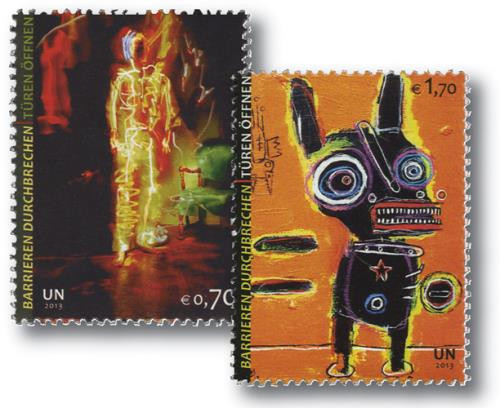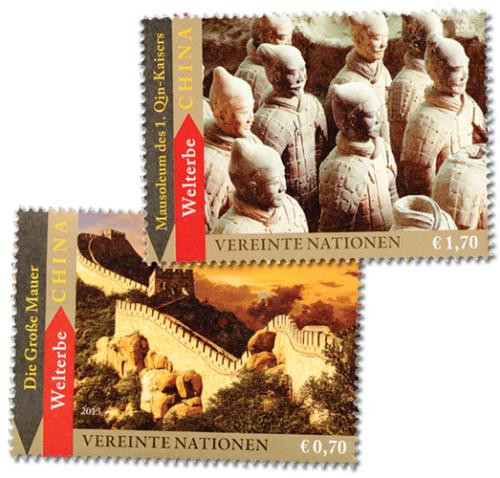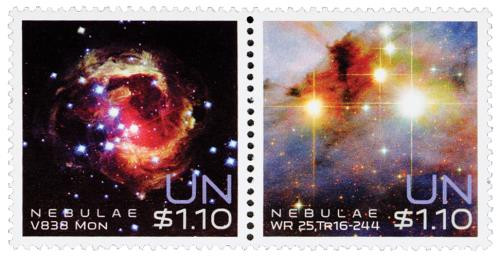
# UNV529-30 - 2013 1.70 UN Vienna Space
2013 Space
Vienna Office
The 2013 UN Space stamps celebrate the largest space event in the world, World Space Week, celebrated each year from October 4th to the 10th. World Space Week seeks to promote sustainable economic development and to excite, encourage and inspire, through international space education. This year’s stamps feature varied nebulae, enormous clouds of dust particles and gas in space, as well as a star cluse.
The term “nebula” comes from the Latin word for cloud. The space clouds we identify as nebulae are often regions where stars are being formed or regions left by dead or dying stars. Nebula clouds can range vastly in shape and size.
The €1,70 stamps picture NGC 7293 and NGC 1850. NGC 7293, also known as the Helix Nebula, is located in the constellation Aquarius only 700 light years from earth. NGC 1850 is a double cluster of young stars 168,000 light years from earth in the Dorado constellation. The nebula cloud surrounding the cluster is thought to be left over from an exploding supernova.
2013 Space
Vienna Office
The 2013 UN Space stamps celebrate the largest space event in the world, World Space Week, celebrated each year from October 4th to the 10th. World Space Week seeks to promote sustainable economic development and to excite, encourage and inspire, through international space education. This year’s stamps feature varied nebulae, enormous clouds of dust particles and gas in space, as well as a star cluse.
The term “nebula” comes from the Latin word for cloud. The space clouds we identify as nebulae are often regions where stars are being formed or regions left by dead or dying stars. Nebula clouds can range vastly in shape and size.
The €1,70 stamps picture NGC 7293 and NGC 1850. NGC 7293, also known as the Helix Nebula, is located in the constellation Aquarius only 700 light years from earth. NGC 1850 is a double cluster of young stars 168,000 light years from earth in the Dorado constellation. The nebula cloud surrounding the cluster is thought to be left over from an exploding supernova.











